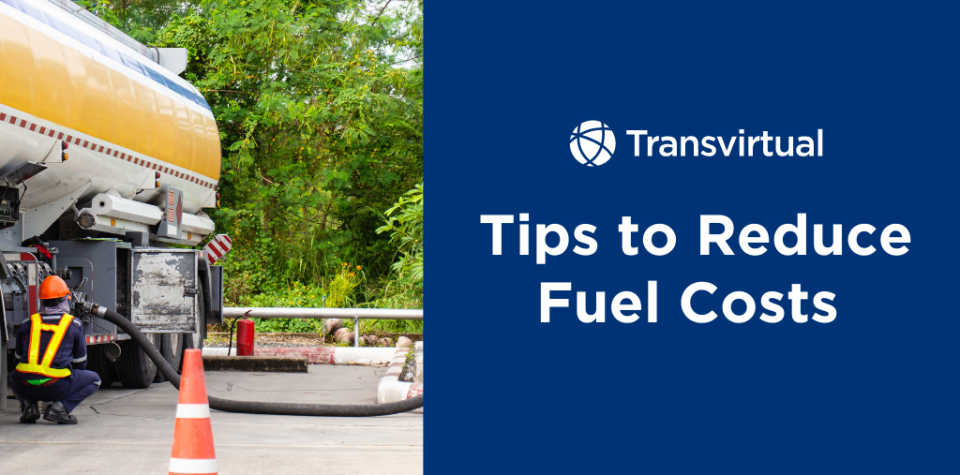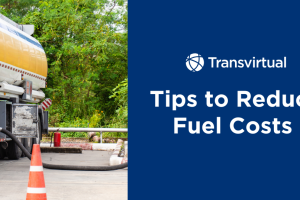The price of petrol and diesel in Australia continues to rise.
Alongside labour and, to a lesser extent, repairs and maintenance, fuel now accounts for a significant portion of your logistics business’s operational costs. And let’s be real: with the oil and gas industry facing ongoing economic shifts, the price of fuel is only going to continue to rise.
Controlling fuel consumption is a must-have strategy to keep your business afloat.
Fortunately, we have the experience and expertise to help you with optimising fuel usage. Lets navigate through those different strategies and the best fuel management systems that you can leverage to manage fuel costs.
Fuel Cost Management: Increasing Fuel Efficiency
Australia’s diverse geographical landscape, from urbanised cities to rural towns, presents unique challenges for logistics companies. Among them is effective fuel management.
Manually tracking fuel usage often leads to errors and dishonesty. Not to mention it requires significant time for data collection and analysis.
A robust fuel management system can be a game-changer for Australian logistics companies, improving profitability and operational efficiency. By leveraging logistics software, companies can monitor fuel data, identify inefficiencies, and mitigate risks like fuel theft.
Fuel Management Systems and Transport Systems
Transport and fuel management systems are critical for maintaining profitability in logistics. While they do have similarities, fuel management software provides detailed data on fuel storage, fuel tank levels, and fuel spend.
A TMS not only supports transport operations but also integrates with fuel management functions and fleet management software. This allows you to take a more comprehensive approach to logistics.
Route Optimisation
One surefire way that logistics software can help with fuel management is by optimizing routes. Route optimisation involves analysing the shortest path between pickup and drop-off points, taking into account traffic, road conditions, and other factors.
By choosing the most efficient routes, you can significantly reduce your fuel consumption, which can lead to substantial savings over time. F
For instance, your TMS software might discover that a particular route to a destination is taking longer than usual, resulting in unnecessary fuel consumption. By optimising the route, your drivers can complete the same journey via a different set of streets or roads with less fuel, leading to cost savings for your company.
Fleet Management
The overall goal of fleet management software is to minimise equipment downtime. Fleet managers use them to monitor vehicle health, schedule maintenance, and track performance.
It’s a pretty good fuel management system too. With a fleet management system, you can track fuel usage and cut fuel costs by identifying issues such as equipment issues or excessive idling.
For example, if you discover that one of your vehicles is operating on low tire pressures, you can schedule a replacement vehicle to immediately go out and complete the run. This will not only prevent further wear and tear on the vehicle’s tires, but correctly inflated tires create less drag on the road resulting in better fuel efficiency.
Data Analysis
OK… we know that we do go on, and on (and ON!) about the importance of data. But real-time monitoring is essential when it comes to fuel management. Having access to accurate fuel data gives you a detailed view of consumption patterns, helps identify inefficiencies, and plays a critical role in theft prevention, ensuring your operations stay cost-efficient and secure.
By tracking and analysing fuel consumption and vehicle movement, your management team can spot trends and patterns. This information helps make better short- and long-term decisions for your business. For instance, your TMS data may show you that fuel consumption increases during peak hours. With this data on hand, you can adjust your route scheduling accordingly, thus minimizing fuel waste.
Similarly, if you notice a connection between fuel consumption and specific driver behaviours, you can implement training programs to encourage safer and more fuel-efficient driving habits.
Keep Your Company Running on Full
Transport software and fuel management systems play a pivotal role in optimizing fuel usage and stretch fuel dollars further.
By providing real-time fuel monitoring, optimizing routes, managing fleets, and facilitating data analysis, transport management software can help your logistics company reduce your fuel consumption, saving you money and improving your bottom line.
To maximise the benefits of logistics software, it is essential to select a robust and user-friendly solution that meets the unique needs of your business. Contact us today at Transvirtual and we’ll be happy to assess if we’ll be a good fit. It’s fast, easy, and most of all, commitment-free.



